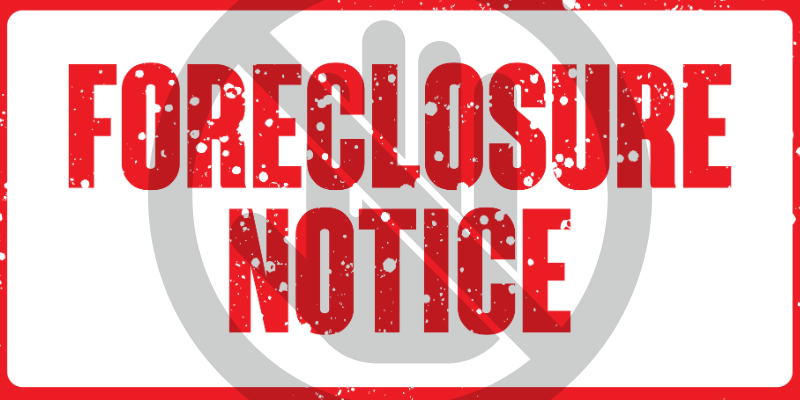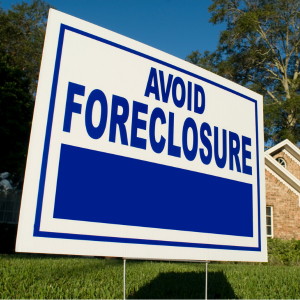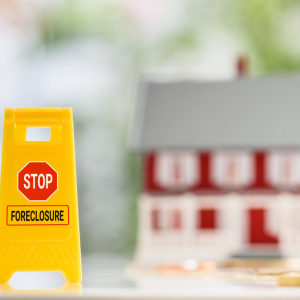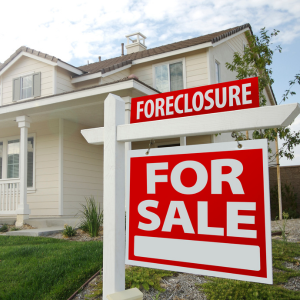
Understanding the Foreclosure Process: Key Steps and Terms
Understanding the foreclosure process in Chicago’s real estate market is essential for homeowners trying to avoid foreclosure. The process usually starts with the homeowner missing mortgage payments, which results in a notice of default from the lender.

This notification is a vital phase in the pre-foreclosure process, during which homeowners can prevent further action by negotiating a loan modification or short sale. Key terminology includes “judicial foreclosure,” which requires the lender to file a case in court, and “non-judicial foreclosure,” which includes selling the property without court action.
Homeowners should understand terminology like “reinstatement,” which allows them to catch up on missing payments before a deadline, and “redemption period,” which offers the opportunity to regain their property by paying off debts fully. Understanding these processes and concepts will help Chicago homeowners take proactive steps to avoid foreclosure and protect their homes in the face of altering market conditions.
Identifying Early Warning Signs of Financial Trouble in Homeownership
If you want to avoid foreclosure in Chicago’s real estate market, you need to know the early warning signals of financial difficulty. Homeowners can take steps to protect themselves if they notice signs like a sudden loss of income, more debt, or rising interest rates on adjustable-rate mortgages.
If you miss mortgage payments or have trouble keeping up with your monthly bills, it’s evident that you need to do something. Homeowners should keep a careful eye on their credit scores because a drop could mean they won’t be able to pay their bills on time.
Unexpected costs, such as medical bills or urgent house repairs, can also put a strain on finances, so it’s important to obtain help before these problems grow worse. Talking to mortgage lenders early on and looking into options for loan modification or refinancing will help.
Homeowners in Chicago can safeguard themselves from the risk of foreclosure and maintain stability in their homeownership journey by staying proactive and addressing issues promptly. If you’re facing challenges, A Team Real Estate Solutions can help with practical solutions tailored to your situation.
Building a Budget Plan to Sustain Long-term Mortgage Payments
Developing a realistic budget plan is essential for homeowners in Chicago aiming to maintain long-term mortgage payments and avoid foreclosure. A well-organized budget enables efficient allocation of income, ensuring that mortgage payments are prioritized alongside other financial responsibilities.
Begin by evaluating your monthly income and organizing necessary expenses, including utilities, groceries, transportation, and healthcare. Identifying areas for reducing non-essential spending is crucial in order to allocate more funds towards your mortgage payments.
Consistently evaluating and modifying your budget enables you to respond effectively to fluctuations in income or unforeseen expenses, ensuring a harmonious balance between essential living costs and mortgage obligations. Furthermore, establishing an emergency fund serves as a financial safeguard, ensuring protection against unexpected situations that could potentially disrupt timely mortgage payments.
Implementing these budgeting strategies allows homeowners in Chicago to improve their financial stability and substantially lower the risk of home foreclosure in the dynamic real estate market.
Strategies to Prevent Home Foreclosure in Urban Areas
In Chicago’s vibrant real estate market, homeowners facing foreclosure can take a number of practical steps to protect their properties. One effective strategy is to seek assistance from housing counseling organizations that specialize in foreclosure prevention.

These organizations offer expert assistance with loan adjustments, budgeting, and financial planning. Homeowners may also consider refinancing choices through government-backed programs designed to make mortgage payments more affordable.
Negotiating different payment terms with lenders is a proactive approach that can prevent missed payments. Understanding and utilizing local resources, such as financial aid or subsidies specifically targeted to prevent foreclosure in metropolitan areas, can also provide an important lifeline.
It is vital that Chicago residents remain informed about their rights and any legal safeguards available under Illinois state law, which may provide extra layers of defense against foreclosure activities. Using these measures, homeowners may significantly reduce their chances of losing their homes in the face of an unpredictable real estate market.
How Housing Market Trends Affect Foreclosure Rates
Chicago homeowners who want to prevent foreclosure need to know how changes in the property market effect foreclosure rates. Changes in the real estate market directly affect how well homeowners can keep up with their mortgage payments.
When property values fall below the amount owed on the mortgage, homeowners may struggle to refinance or sell. This situation is known as an underwater mortgage. Economic downturns and high unemployment make matters worse, as reduced household income leads to greater financial strain. In such cases, working with cash home buyers in Chicago and surrounding Illinois cities can offer a quicker solution for those needing to sell without delay.
On the other hand, a strong real estate market with rising property values could give homeowners equity, which would let them refinance or sell before they get close to default. Higher interest rates can make monthly mortgage payments more expensive and make it more likely that someone will default.
To put in place successful foreclosure prevention and homeownership stability programs in Chicago’s varied neighborhoods, it’s important to know how the housing market works.
Legal Rights Every Homeowner Should Know When Facing Eviction
To avoid foreclosure in Chicago’s real estate market, homeowners need to understand their legal rights while facing eviction. Understanding these rights is critical for protecting one’s home and navigating the complex legal system.
In Illinois, homeowners have the right to receive a notice of default before foreclosure procedures commence. This gives them time to seek legal assistance or negotiate with lenders. It is critical for homeowners to understand that they have the right to request loan modifications or explore government aid programs aimed at preventing foreclosures.
During the foreclosure process, individuals can request a court hearing to present their case and challenge any discrepancies or inaccuracies in documents. Homeowners should also be informed of their right to redeem their property by paying off the outstanding balance before the transaction is finalized.
Taking a proactive approach and understanding your legal rights can help prevent home loss and open up alternatives like short sales or refinancing in Chicago’s fast-moving real estate market. For those seeking a faster solution, working with a cash for houses company in Springfield and other cities in Illinois can be an effective way to move forward.
Financial Assistance Programs for At-risk Homeowners
At-risk homeowners facing foreclosure in Chicago’s real estate market can benefit greatly from a variety of financial assistance programs designed to keep them in their homes. These initiatives are critical for homeowners who are struggling with mortgage payments.
The Illinois Hardest Hit Fund provides temporary financial relief to eligible residents by covering mortgage payments, allowing families to reestablish stability. In addition, the Home Affordable Modification Program (HAMP) provides loan modification options to those in financial distress, lowering monthly payments and making mortgages more affordable.
Local non-profit organizations also play an important role in providing counseling services and connecting homeowners with resources such as grants and low-interest loans designed specifically for foreclosure prevention. Furthermore, the US.
The Department of Housing and Urban Development (HUD) employs certified housing counselors who provide free budgeting and loan negotiation advice. At-risk homeowners in Chicago can use these financial assistance programs to avoid foreclosure and maintain their homeownership status during difficult times. For those considering other options, exploring an expert guide to selling your duplex can provide practical steps to secure financial relief and move forward with confidence.
Negotiating with Lenders: Tips to Avoid Foreclosure
Negotiating with lenders in the Chicago real estate market can be an effective strategy for avoiding foreclosure. Homeowners should begin by openly communicating with their mortgage lenders as soon as they anticipate financial difficulties.
It is critical to provide complete and accurate financial information, including income and expenses, to demonstrate your commitment to resolving the problem. Requesting a loan modification can be a useful tool because it may reduce monthly payments or lengthen the loan term, making it more manageable.
Another option is to enter into forbearance agreements, which allow you to temporarily suspend or reduce your payments without significantly affecting your credit score. Highlighting any changes in circumstances, such as job loss or medical emergencies, can assist lenders in determining the need for adjusted terms.
Engaging a HUD-approved housing counselor can also provide expert guidance throughout the negotiation process, increasing the likelihood of reaching a favorable agreement. Homeowners in Chicago can work to maintain ownership of their properties despite difficult economic conditions by proactively addressing potential foreclosures using these negotiation tactics.
How Long Does It Take to Foreclose in Chicago?
Comprehending the foreclosure timeline is essential for homeowners in Chicago seeking effective strategies for foreclosure prevention. The foreclosure process in Chicago typically spans 12 to 18 months, providing homeowners with an essential timeframe to consider their alternatives.
Homeowners should promptly reach out to lenders and explore options like loan modifications or refinancing to halt the foreclosure process. Engaging a foreclosure attorney with expertise in Chicago’s real estate laws can assist in navigating intricate legal processes and potentially prolong timelines as necessary.
Homeowners ought to be informed about local housing assistance programs that offer resources and support during challenging periods. Homeowners in Chicago’s competitive real estate market can take proactive measures early on to prevent foreclosure and should familiarize themselves with the foreclosure timeline.
What Is the Best Way to Avoid Foreclosure?
One of the most effective ways to avoid foreclosure in Chicago’s real estate market is to contact your lender and explore all available mortgage assistance options. If you’re struggling to make payments, reach out to your mortgage servicer as soon as possible to discuss potential solutions such as loan modification, refinancing, or a repayment plan that aligns with your current finances. To learn about a more straightforward way to handle the situation, see how we can help.

Also, getting help from a HUD-approved housing counseling agency can give you valuable advice and support. These groups will help you with your budget, your debt, and the complicated rules of Illinois foreclosure prevention programs for free.
Another good idea is to look into government-backed programs like the Home Affordable Modification Program (HAMP) or local programs that help homeowners in Chicago who are having trouble. It’s also important to know your legal rights and duties under Illinois foreclosure laws.
Homeowners in Chicago’s tough real estate market can greatly lower their chances of losing their homes by taking these proactive steps and using the resources that are available to them.
Can I Make Payments to Avoid Foreclosure?
If you’re facing foreclosure in Chicago’s real estate market, making on-time mortgage payments is critical to keeping your home. Communication with your lender is essential; contact them to discuss possible repayment plans or loan modifications tailored to your specific financial situation.
Consider refinancing, which can lower your monthly payments and make them more manageable. Furthermore, budgeting effectively and prioritizing mortgage payments can help reduce the risk of foreclosure.
Using resources such as HUD-approved housing counseling agencies can help you create a sustainable payment plan. Forbearance agreements may provide temporary relief by pausing or reducing payments until your finances stabilize.
In Chicago’s competitive real estate market, you can effectively avoid foreclosure and maintain stability by remaining proactive and informed about your payment options.
Helpful Chicago, IL Blog Articles
- Understanding FSBO Costs In Chicago, IL
- How To Stop Unsolicited Home Offers In Chicago, IL
- How To Sell Your Chicago Home Below Appraised Value
- Do Heirs Need Unanimous Consent To Sell Inherited Property In Chicago
- Effective Strategies To Prevent Home Foreclosure In Chicago
- Overcoming Title Issues for a Smooth Closing in Chicago, IL
- Chicago Home Staging Tips for a Successful Sale
- Tenant Damage in Chicago Rentals
- Best Time to Sell Your Home in Chicago, IL
- Expert Guide To Selling Your Duplex In Chicago, IL
- Deed Requirements For Selling A House In Chicago, IL
- Selling A Flood-damaged House In Chicago, IL
- Strategies For Removing Bad Tenants In Chicago, IL

| FORECLOSURE SALE | MORTGAGE LOAN | ILLINOISANS | SCAMMERS | SCAMS | LAWYERS |
| COMPLAINT | BANKRUPTCY PETITION | BANKRUPTCY | MORTGAGE MODIFICATION | JUDGEMENT | JUDGMENT |
| FRAUD | LOSS MITIGATION | COOK COUNTY | CHICAGO, IL | SUMMONS | LITIGATION |
| FEES | CHAPTER 13 BANKRUPTCY | CHAPTER 13 | EQUAL HOUSING LENDER | AMERICA | MORTGAGE FRAUD |
| IDFPR | ILLINOIS DEPARTMENT OF FINANCIAL AND PROFESSIONAL REGULATION | MONEY | MEDIATION | ||
| LEGAL AID | LAKE COUNTY | INSURANCE | HOTLINE | FINANCES | DEED |
| CASH |
